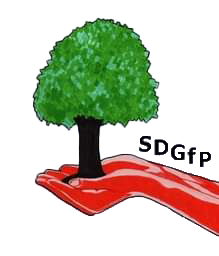Info about the project
Within the situation of the World pandemic resultant from the spread of COVID-19, educational institutions have had to adapt their teaching methods and the organisations involved were no exception. Regular work with pupils was no longer possible and had to be moved online, with such it quickly became obvious that though there are materials online on the SDGs that can be downloaded and user, including some using gamification, these were still designed for use in the classroom. The materials that could be used online are often of a very limited nature of interactivity and engagement or require a cumbersome setup. Facing this situation, the organisations in the consortium worked together to draft a plan for the development of a fully interactive and responsive online platform that would teach pupils (in both computers and mobile/tablet devices) about the SDGs online, promoting and empowering them towards more sustainable practices.
The project’s aim is to design and develop learning materials that will be used in an online platform (also to be designed and used), that will help pupils develop the key competences for the 21st century of critical thinking, creativity and problem solving while teaching them about the United Nation’s Sustainable Development Goals. This will result in two (intellectual) outputs and several results associated to them:
Design and development of learning materials – The organisations involved will design and develop learning materials on the SDGs, while taking into account feedback and contributions from teachers. There will be materials for each of the SDGs (there are 17 goals) taking different shapes such as questions, quizzes, challenges, interactive presentations. Overall there will be more than 17 different gamified elements, to enable a diversified and extensive offer that will keep the pupils interested.
Design and development of online platform – The organisations involved will design and develop a platform that will host the aforementioned learning materials that will support gamification elements to go along with the interactive nature of the learning materials. The exact shape of the platform will be seen as its design and development progresses, but is expected to incorporate points, achievements and leader boards for the pupils.
Development of digital skills course – The organisations involved in the project will develop a teacher training course on digital skills related to distance learning that will be delivered to teachers within the scope of the project and be made available online.
These outputs are expected to deliver the following results:
– Contribution to pupils developing key competences and learning about the SDGs. Such is estimated to occur with 80 pupils during the project (as a result of the testing work done), and 200 pupils within the first year following delivery of the online platform with the learning materials.
– Support to schools in having learning materials to teach their pupils about sustainable development, and the key competences of critical thinking, creativity and problem solving, available for free online in their native language. It is estimated that 6 teachers and 6 administrative staff members will have been affected by this during the project as a result of their contributions to the testing, while a further 25 teachers and schools’ administrative staff within the first year following delivery of the online platform with the learning materials.
– Contribution to teachers developing their digital skills, thus allowing them to better deliver on distance learning. It is estimated that 25 teachers will benefit directly from training sessions wherein the digital skills course will be delivered, while a further 50 will benefit within the first year following the course being made available online.

